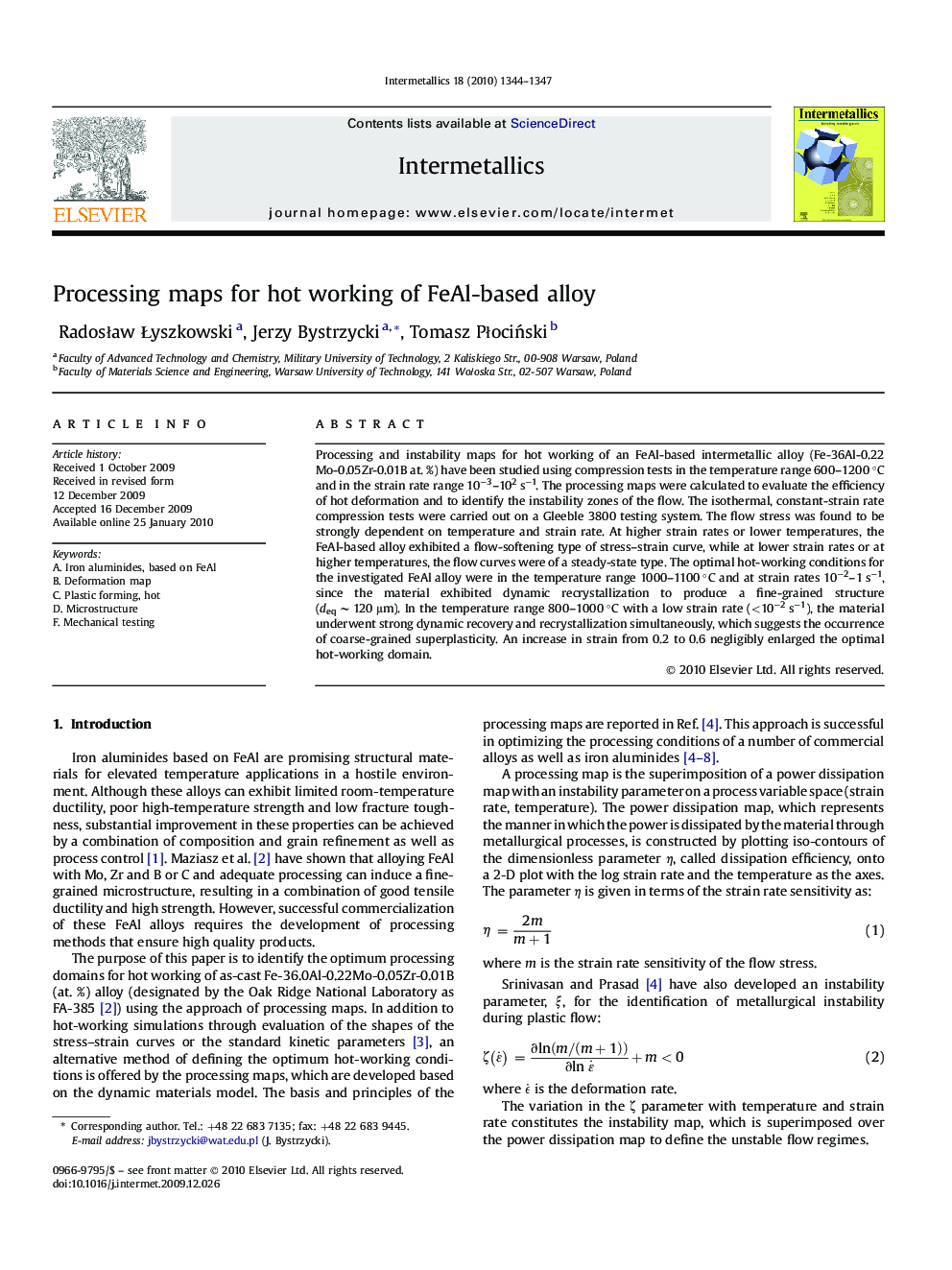| کد مقاله | کد نشریه | سال انتشار | مقاله انگلیسی | نسخه تمام متن |
|---|---|---|---|---|
| 1601357 | 1005194 | 2010 | 4 صفحه PDF | دانلود رایگان |

Processing and instability maps for hot working of an FeAl-based intermetallic alloy (Fe-36Al-0.22Mo-0.05Zr-0.01B at. %) have been studied using compression tests in the temperature range 600–1200 °C and in the strain rate range 10−3–102 s−1. The processing maps were calculated to evaluate the efficiency of hot deformation and to identify the instability zones of the flow. The isothermal, constant-strain rate compression tests were carried out on a Gleeble 3800 testing system. The flow stress was found to be strongly dependent on temperature and strain rate. At higher strain rates or lower temperatures, the FeAl-based alloy exhibited a flow-softening type of stress–strain curve, while at lower strain rates or at higher temperatures, the flow curves were of a steady-state type. The optimal hot-working conditions for the investigated FeAl alloy were in the temperature range 1000–1100 °C and at strain rates 10−2–1 s−1, since the material exhibited dynamic recrystallization to produce a fine-grained structure (deq ∼ 120 μm). In the temperature range 800–1000 °C with a low strain rate (<10−2 s−1), the material underwent strong dynamic recovery and recrystallization simultaneously, which suggests the occurrence of coarse-grained superplasticity. An increase in strain from 0.2 to 0.6 negligibly enlarged the optimal hot-working domain.
Journal: Intermetallics - Volume 18, Issue 7, July 2010, Pages 1344–1347